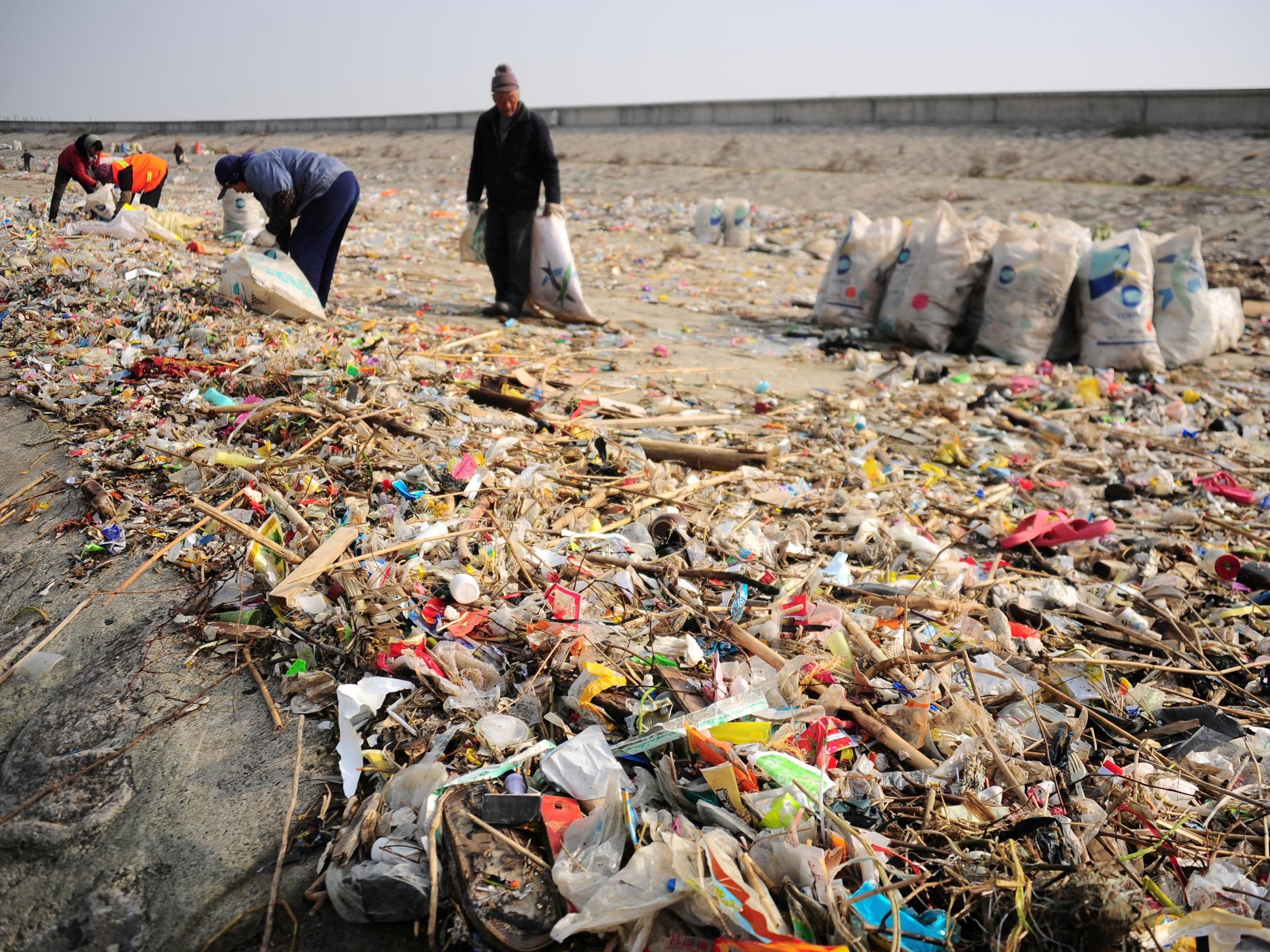Plastic pollution off China's coast soars after drive to stop dumping it in rivers
More than 200 million cubic metres of waste found floating off Chinese shores last year

Your support helps us to tell the story
From reproductive rights to climate change to Big Tech, The Independent is on the ground when the story is developing. Whether it's investigating the financials of Elon Musk's pro-Trump PAC or producing our latest documentary, 'The A Word', which shines a light on the American women fighting for reproductive rights, we know how important it is to parse out the facts from the messaging.
At such a critical moment in US history, we need reporters on the ground. Your donation allows us to keep sending journalists to speak to both sides of the story.
The Independent is trusted by Americans across the entire political spectrum. And unlike many other quality news outlets, we choose not to lock Americans out of our reporting and analysis with paywalls. We believe quality journalism should be available to everyone, paid for by those who can afford it.
Your support makes all the difference.The amount of plastic polluting China‘s coastal waters has soared following a government drive to stop rubbish being dumped in the country’s rivers.
More than 200 million cubic metres of waste was found floating off Chinese shores last year, up 27 per cent on 2017, according to the environment ministry.
Debris in the country’s seas has hit the highest level in a decade, with plastic accounting for the vast majority of the rubbish.
Most of the waste was dumped in the delta regions of the Yangtze and Pearl rivers, both major industrial zones on China’s eastern coast, the Ministry of Ecology and Environment said.
“At the moment, there are some clear problems with the work on the marine ecological environment, with some regions not showing a lot of awareness or paying sufficient attention, and lacking strong initiative and dedication,” said Huo Chuanlin, deputy director of the ministry’s marine environment department.
Environmental groups have previously expressed concern that China, desperate to clean up its own rivers, is dumping increasing amounts of trash in its seas instead.
China found an average of 24kg of floating waste per 1,000 square metres of surface seawater last year. Some 88.7 per cent of that was plastic, the ministry said. Plastic also dominated the waste found below the surface, including on the seabed.
But Mr Huo insisted overall conditions in the country’s coastal waters, including issues like wastewater entering the seas from rivers, were improving.
“China is the biggest producer and exporter of plastic products, accounting for about 30 per cent of the world’s total, but that doesn’t mean China is a major marine plastic polluting country,” he told a press briefing in Beijing.
However, scientists say China is the world’s leading generator of plastic waste.
In a study published in May, researchers at Tianjin University warned China’s “massive impact on the plastic levels of the ocean” was “a definite cause of concern” with “multiple economic, environmental and biological complications”.
Earlier this year, Beijing published an action plan designed to clean up Bohai Bay, one of the country’s busiest and most polluted waterways, in northeast China.
The government has earmarked 7 billion yuan (£770m) for the clean-up this year alone, but Mr Huo said it is still expected to struggle to meet a key target aimed at making at least 73 per cent of Bohai’s waters fit for human contact by next year. At present 70 per cent meets that standard.
China is planning to make about 30 per cent of its coastal waters completely off-limits to development as part of a national “ecological red line” scheme.
But it is also trying to protect its rivers and improve the environment of its cities by moving polluting industries like steel and petrochemicals to the coast.
Additional reporting by Reuters
Join our commenting forum
Join thought-provoking conversations, follow other Independent readers and see their replies
Comments